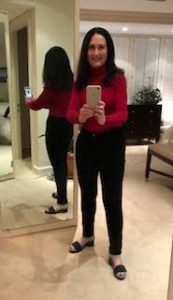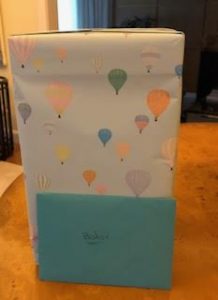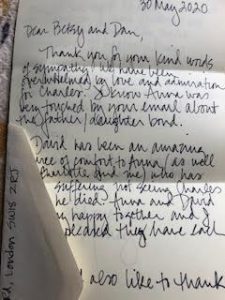How a 4 hour interview lead to a 27 year career
Read More
The Plug-In Drug
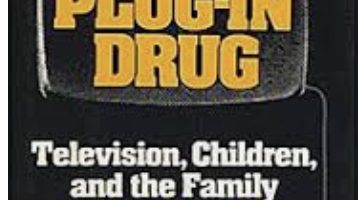
The Plug-In Drug
Most of my friends have been TV bingeing for years, and during the pandemic lockdown it certainly was the activity of choice.
But I’ve never been much of a TV watcher, and I couldn’t agree more with Marie Winn when in the 1970s she wrote about the problems inherent in watching too much TV in her book The Plug-In- Drug. She was concerned about TV’s effect on children, especially the violence in those early kids’ cartoons and in all the shoot-em-ups.
I’m sure with the growing awareness of those concerns and the advent of the Childrens Television Workshop, and wonderful shows like Sesame Street, The Electric Company, and Mr Rogers her fears were somewhat assuaged. But her point was that for both children and adults, watching so much of the fare on TV is a passive, sometimes even numbing experience.
On the other hand reading good, well-written books is not a passive activity but an active one. Reading makes us think and emote – biography can inspire, non-fiction can teach, and good fiction can help us understand the human condition, and to quote the wonderful novelist Anne Tyler, reading allows us to “live in different places and in different times.”
Of course over the years I’ve watched my share of TV, and in fact recently binged on reruns of Downton Abbey and My Brilliant Friend.
Yet don’t assume my husband is an outlier like me, on the contrary he’s a TV addict. Firstly he’s a news junkie, but that’s excusable and lately I’m glued to MSNBC myself. But he also watches sports a helluva lot, and he loves the old movies on Turner Classics, and he’ll watch whatever’s on the History Channel, and every animal or nature show he can find.
Of course that’s all good stuff, but at times when there isn’t anything good on he’ll keep switching channels until he finds the least objectionable program. That’s known in our house as the LOP, as in, “I see you’re watching the LOP, I thought you were fairly intelligent, how can you watch that crap?”
But so much for my TV rant, he just told me it’s time for Jeopardy and I really hate to miss that show!
– Dana Susan Lehrman
Don’t Worry, Be Happy
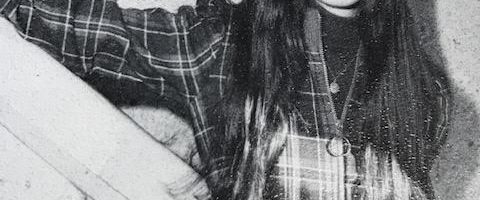
Dear 21 Year Old Betsy,
You pride yourself on high achievement. That is fine and working hard will serve you well throughout your life, but I assure you, life will have its twists and turns. You will not have a career in the arts, but will find enjoyment through them. Go with the flow. Learn to be less timid. You are strong. You will survive and grow (no; not any taller). Don’t be too hard on yourself.
You have made many wonderful friendships through these formative years. You are good at nurturing them and they will nurture you throughout your whole life. Learn from your friends, lean on them. Even though some may lapse, you will be pleased to find how strong the bonds will remain and flourish again at later dates, even in surprising ways.
You have a natural warmth. Let it shine through. People are drawn to it. You just don’t realize it yet. You are not afraid to “let it all hang out”; you speak your mind. Your openness is awesome, but it leaves you vulnerable to being hurt. Realize this, don’t protect against it. It is a strength.
At some point, you get over your innate shyness and become comfortable with all kinds of people. That is marvelous. Your natural curiosity will serve you well.
A sense of humor is SO important. Learn to laugh more, at yourself and with others. It helps to maintain balance, humility and gets you through difficult times. You ooze empathy. Others sense that about you. You will be constantly surprised by people’s response to you. Learn to own it.
Take exercise and healthy eating more seriously at an early age. Forget the sweet tooth. That great metabolism won’t keep going forever. There seems to be longevity in your family. Take care of yourself, as you will be a caretaker for others. Above all else, remember to keep smiling.
Love you girl,
68 Year Old Betsy
Good Manners
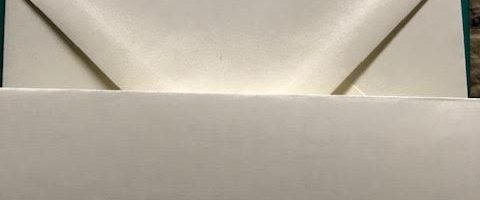
I am a relic of a by-gone era. I believe handwritten thank you notes should still be written in response to gifts (except from immediate family members, when a verbal thank you will suffice). As you see, I still have monogrammed stationery (the Featured photo) for writing such notes (as well as condolence notes). It is true, email may get there more quickly, but just doesn’t have the same impact.
I insisted that both my children send “thank you’s” for every gift they received when they were bar mitzvahed (admittedly, a long time ago). That was challenging for my younger child, as he hated to write and barely attended school that year. We worked out a system. I had a list of every gift and addressed every envelope. I wrote a template for a short note, commenting whether the person had attended the ceremony or not (“glad you were able to join me on my special day”, or ” sorry you couldn’t…”), then thanking for the specific gift, which was on a spreadsheet and would be checked off once the note was written. Then a signature. Just that simple, but at least there was a personal touch. We wrote about five a day and got through all of them.
My birthday was not too long ago. I have exchanged presents with a childhood friend for 45 years. Her birthday is one month earlier than mine. She writes a note immediately and her gift arrived weeks before my birthday and sat, waiting for my big day. It was a beautiful decanter, which now sits on my dining room chest. I wrote my thank you note immediately, though was too late to get it in the mail that day. We’ve exchanged jewelry, scarves, books; we know each other well. But I wouldn’t think of just texting or emailing. We just don’t do that with each other.
Last May, David’s long-time girlfriend lost her father. We sent flowers to her mother in London and I wrote a long condolence note to her. Worried, that it might take too long to get through international mail, I also sent it via email, a few days after I sent my handwritten note. I received a lovely note from her mother some weeks later. Perhaps it is just our generation, but I do believe that the handwritten note is the correct way to acknowledge gifts, contributions or condolences of any sort.
Having said all that, it can be difficult to actually say “thank you” to someone in real time. Showing gratitude in a way that the other person receives it can be challenging. How to say it in a meaningful way without being heavy-handed, or too dismissive, or too flowery is a delicate task. I know I sometimes struggle with it. I can be too off-handed; “Thanks”, just isn’t the right tone. “No problem”, “Sure”, etc. It can be difficult to strike the right balance, not hurt the other person’s feelings, particularly when the person is giving a thoughtful gift and wants to be properly thanked. We all do, right? So we have to get the tone and level of enthusiasm just right so we don’t hurt any feelings. We have to take the other person into account.
And I have given up trying to get my children to write thank you notes at this point in their lives. Now an email, text of phone call to a relative will do just fine, thank you very much!



